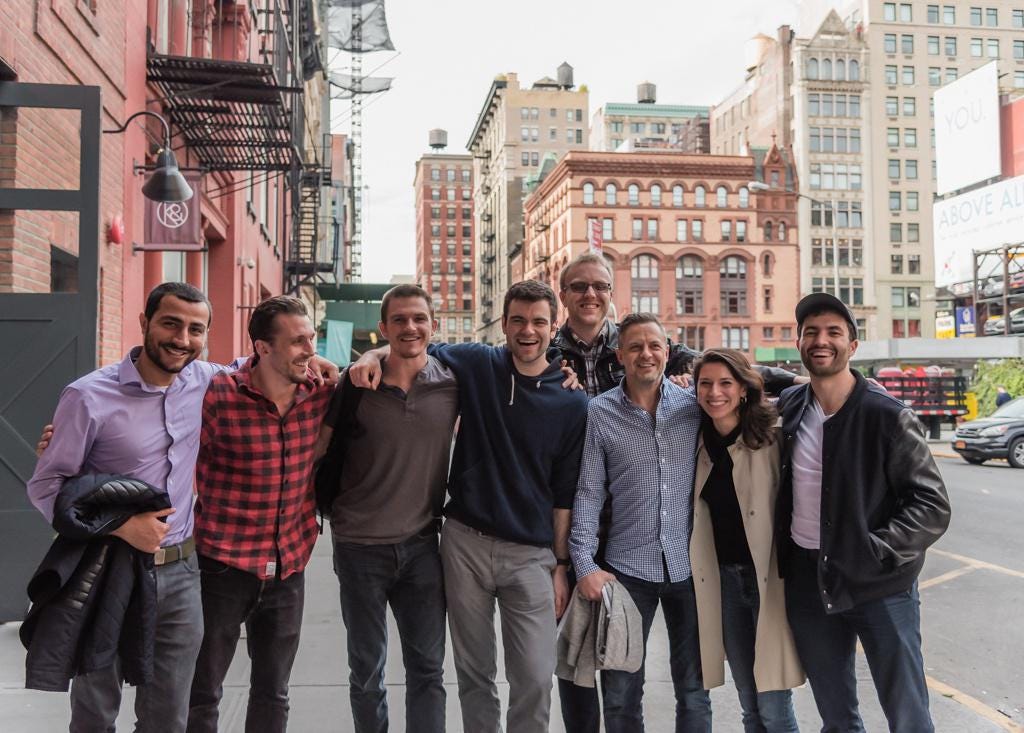
It’s summer 2017. It’s summer 2017. Muneeb Ali is a Princeton PhD candidate in computer sciences. He is finishing his thesis detailing his experiences building Blockstack, a decentralized blockchain-based internet that allows users to control their data. Ali was inspired by Alan Turing, a Princeton graduate and the anonymous creator of Bitcoin, and explored other uses that could be made on top of the largest decentralized payment network.
Now, fast forward to today. Dr. Ali just raised $150 million for Trust Machines in New York. He co-founded Trust Machines with Princeton computer science professor Dr. JP Singh. Trust Machines aims to unlock what they believe is the ‘true potential of bitcoin’ through decentralized finance applications, DAOs, and NFTs on Blockstack. Stacks is a smart contract network that links to bitcoin.
Breyer Capital, Union Square Ventures and Hivemind are among the investors in this round. The value of the round was not disclosed. The potential for Bitcoin to flourish in Web3 is at stake.
Jim Breyer, founder of Breyer Capital, and an early Facebook investor, stated that bitcoin could be more than just a store of values. “We are excited to support Trust Machines in their mission to make bitcoin more profitable.
Participation by high-profile investors such as Breyer is a sign of confidence in bitcoin’s future growth prospects. Despite its success bitcoin’s ecosystem has experienced slower development than other Layer-1 chains like Ethereum and Solana. Because bitcoin is scarce, it has been embraced by mainstream as a store of value’. This narrative is currently being challenged by bitcoin’s growing correlation with risky assets such as stocks.
Ali says Trust Machines is a company that aims to transform bitcoin’s trillion dollar value into more productive capital, and to grow a market of bitcoin applications. Ali laments that bitcoin’s programmable layer 1 value is underappreciated.
Trust Machines has raised capital and plans to hire core bitcoin developers to create products that will allow bitcoin investors to take part in the growing sector of decentralized finance. However, the lion’s share of its value remains locked in Ethereum. Consider yield-bearing opportunities to bitcoin holders, social apps, DAOs and bitcoin-native NFT experience and swaps.
Ali says that over the past four to five years, Ali has been working to create the infrastructure (Stacks), to allow the development of these applications. Now that the infrastructure is mature, we are building these applications.
Ali first learned about bitcoin from Arvind Narayanan (Princeton professor). He later wrote one the most popular college textbooks and served as Ali’s thesis committee member. However, he hadn’t read the book for two more years. Reflecting on the origins of Stacks, he recalls that ‘One thing that really fascinated’ him was ‘What else could we do with this technology?”
Hiro, a New-York-based company he cofounded in order to create developer tools for Stacks has raised $75 million from investors such as Union Square Ventures and Y Combinator. Harvard Management Co. also participated in the round. This firm manages the $41.9 billion University endowment. purchased a total $11.5 million in Stacks tokens. Last month, the Stacks mainnet celebrated their one-year anniversary. There were over 2,500 smart contracts and 50,000 wallet downloadings.
Bitcoin smart contracts can be seen as the Holy Grail in crypto. Platforms such as Stacks and RSK, which are both supported by bitcoin smart contracts, were developed by IOVLavs in Argentina. They show how the bitcoin developer ecosystem can be innovative and allow for Web 3.
Hiro, previously headed by Ali, will now be managed by Alex Miller, Hiro’s Chief Operative Officer. Ali will still serve as the chairman. Diwaker Gupta (currently VP of Technology) will assume the role as Hiro’s Chief Technology officer.
